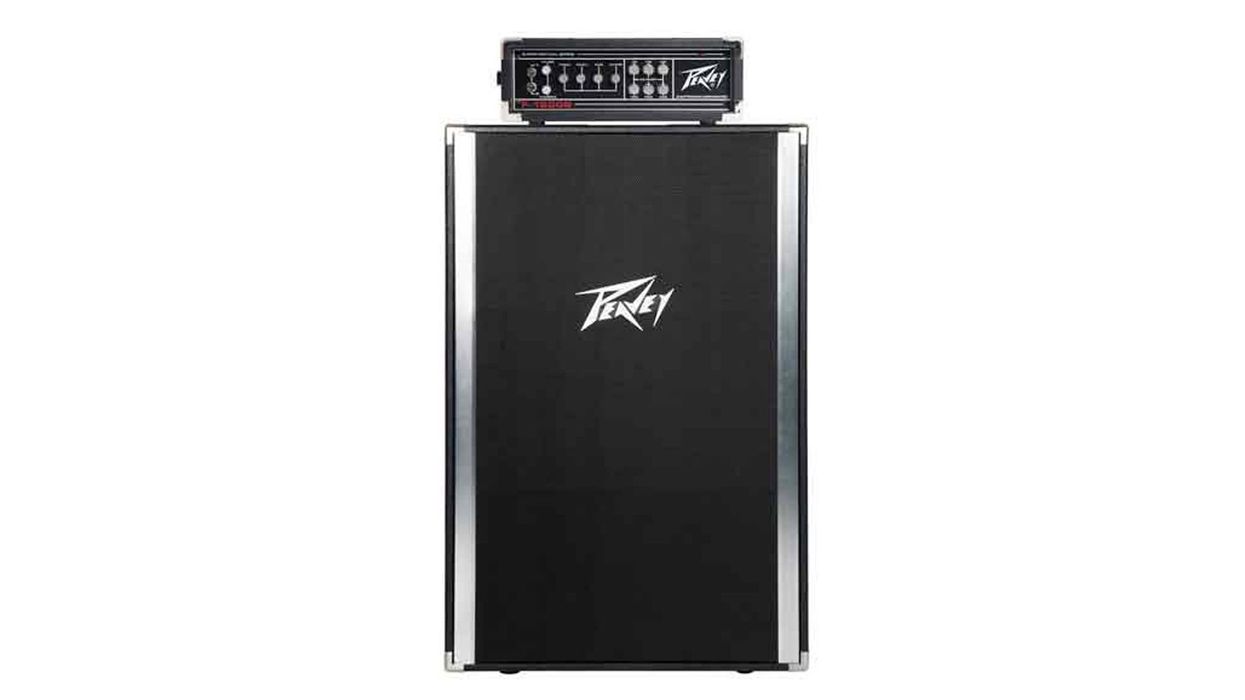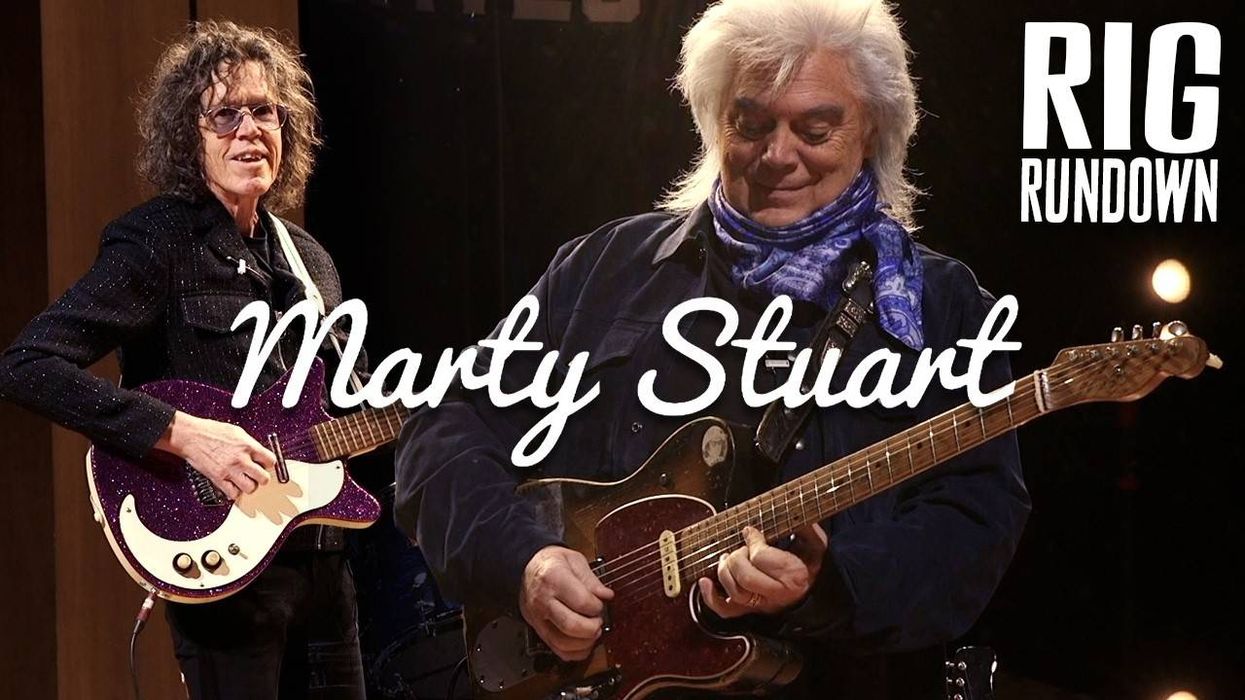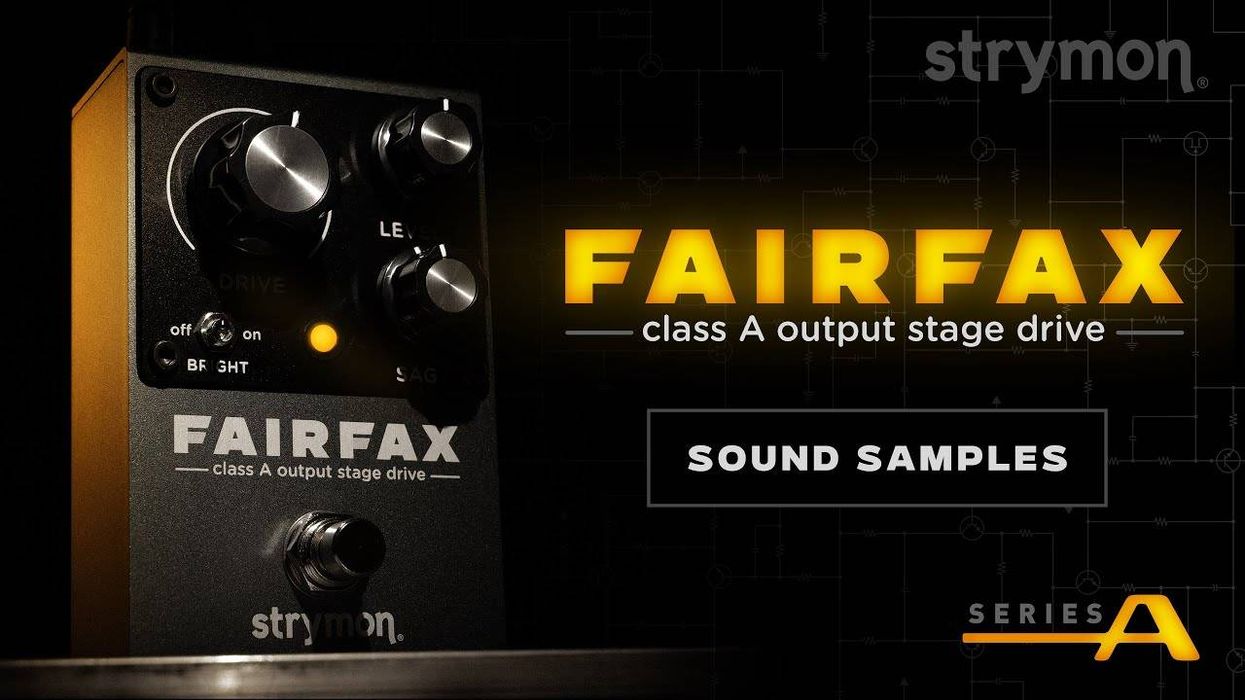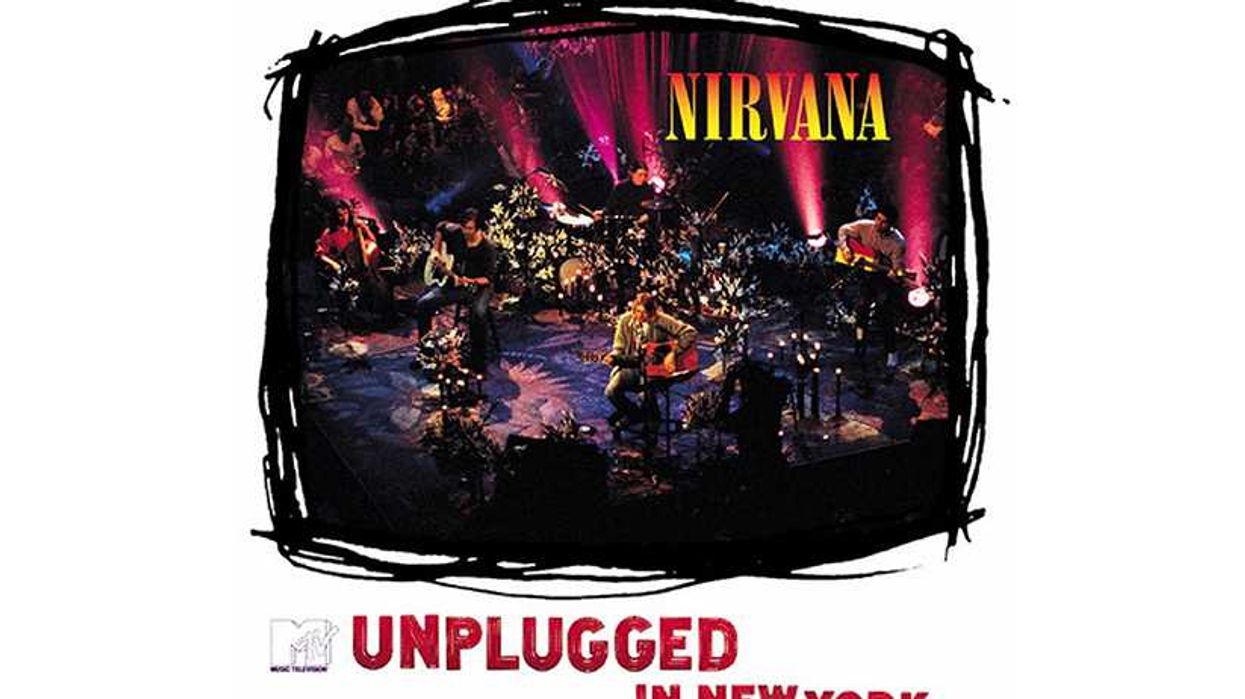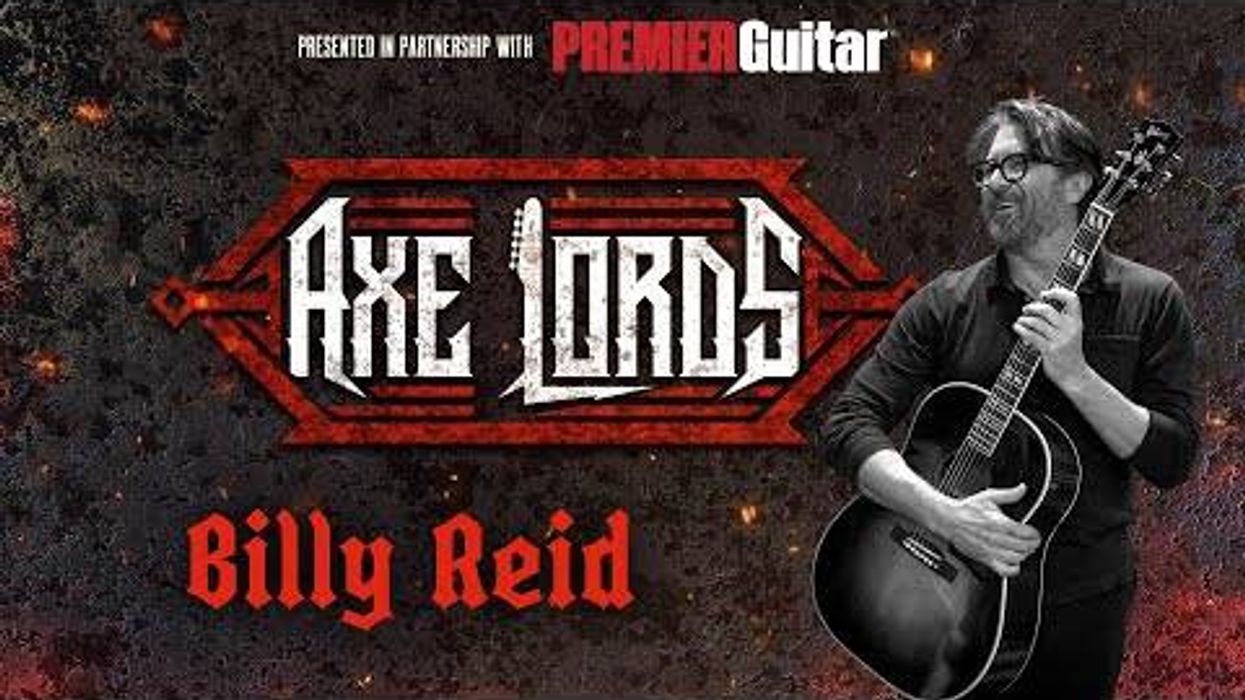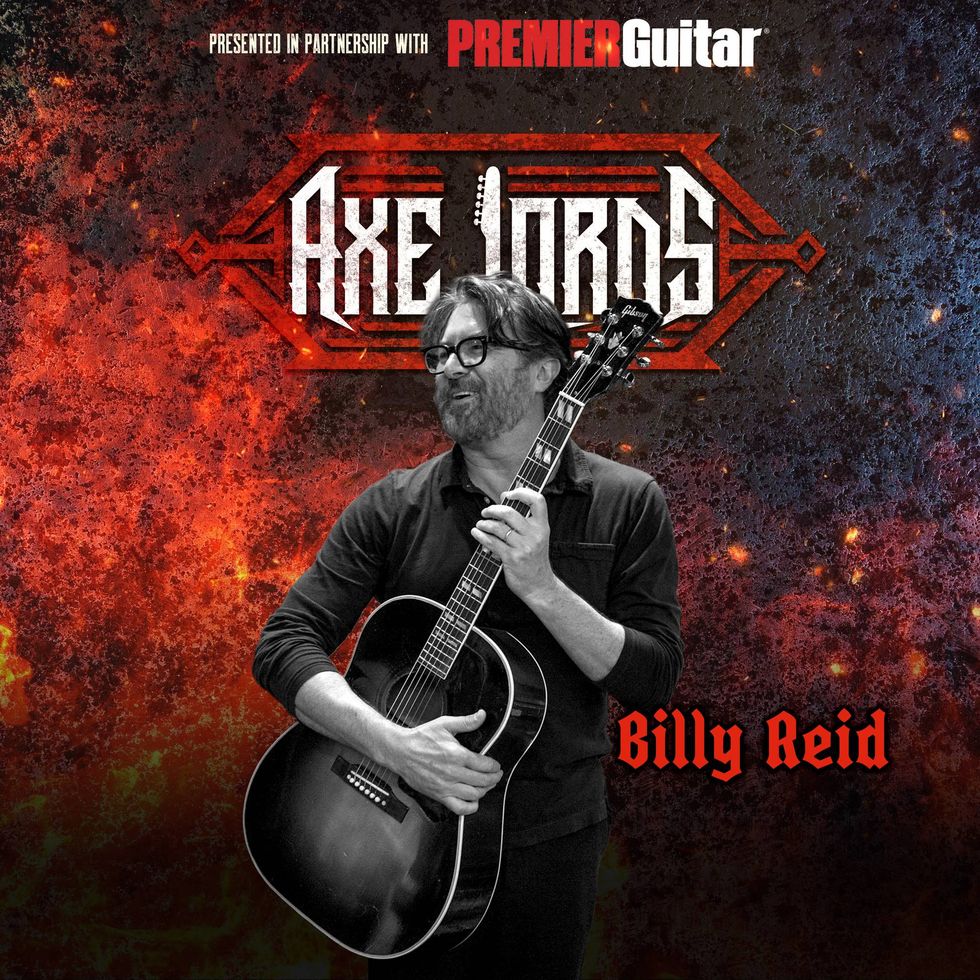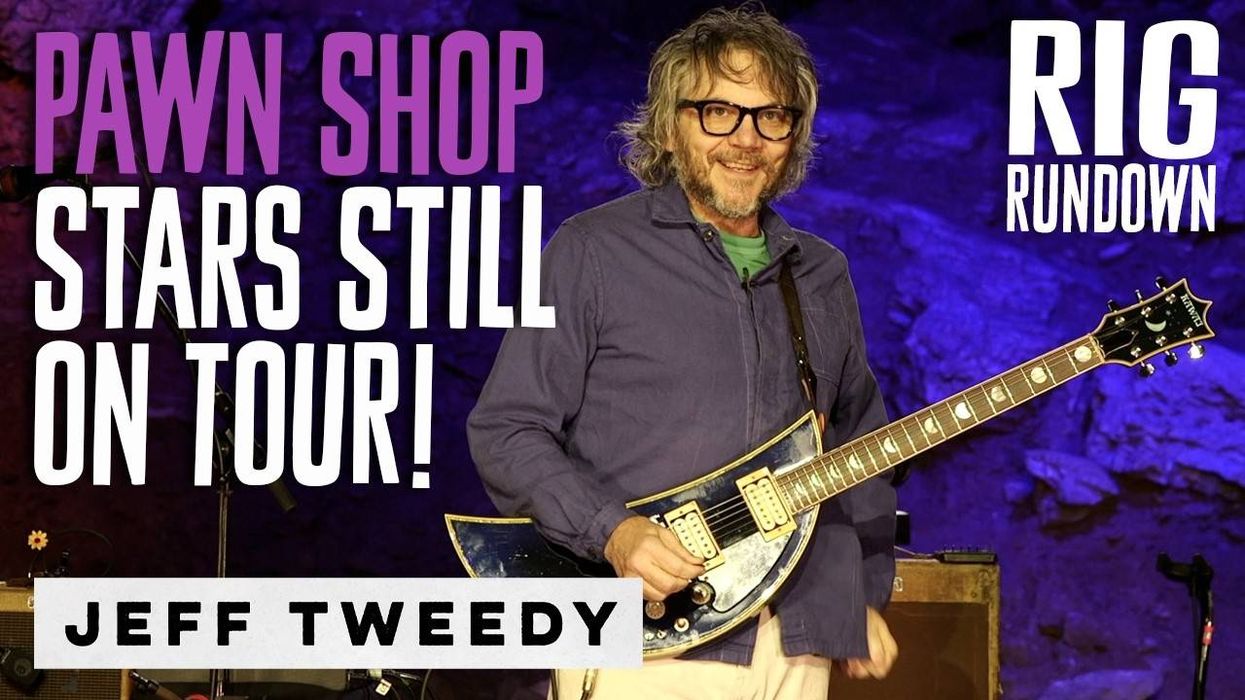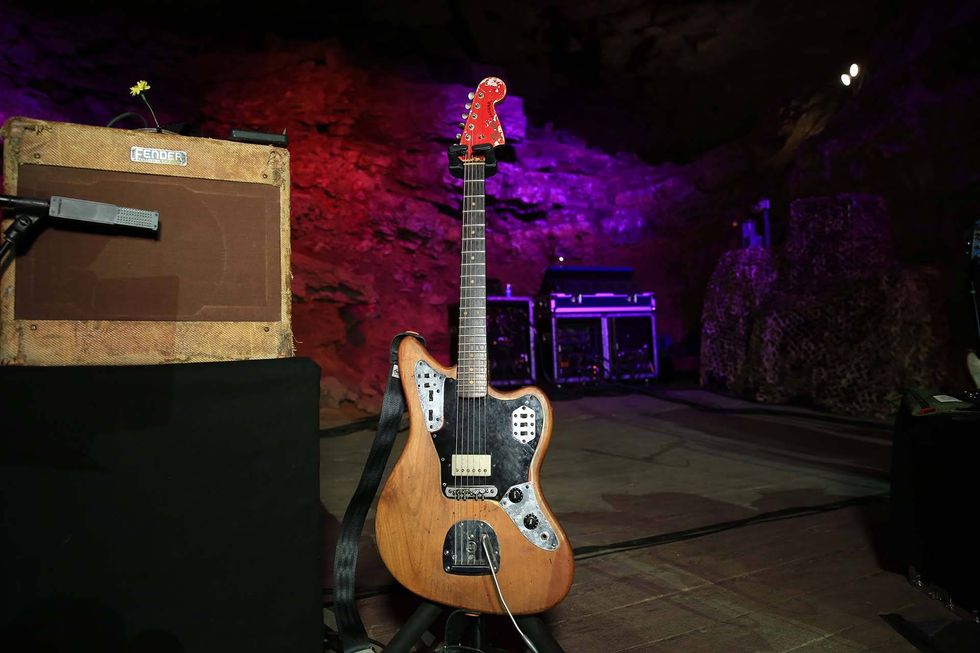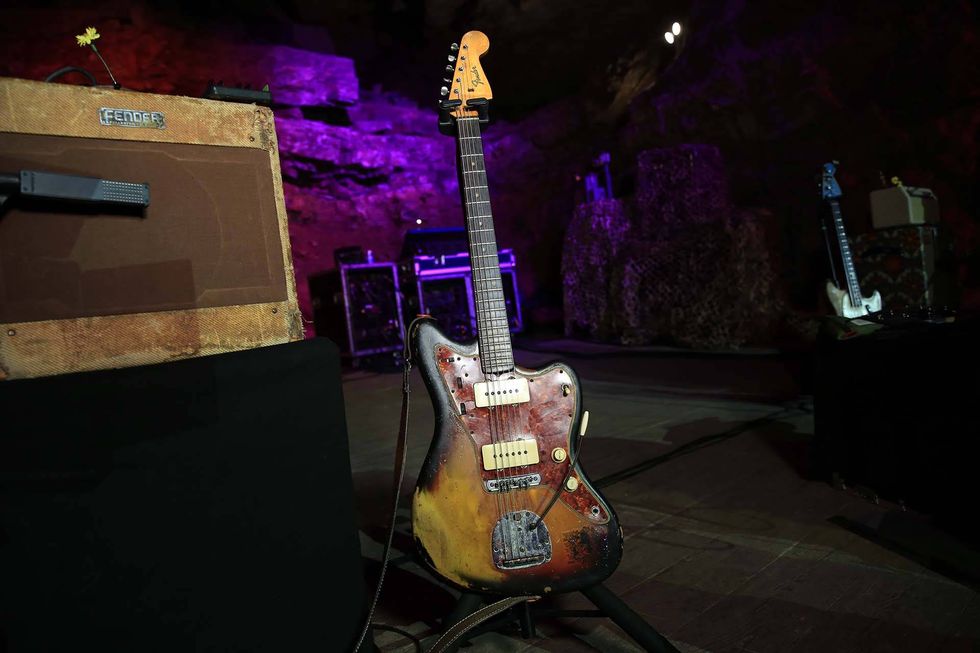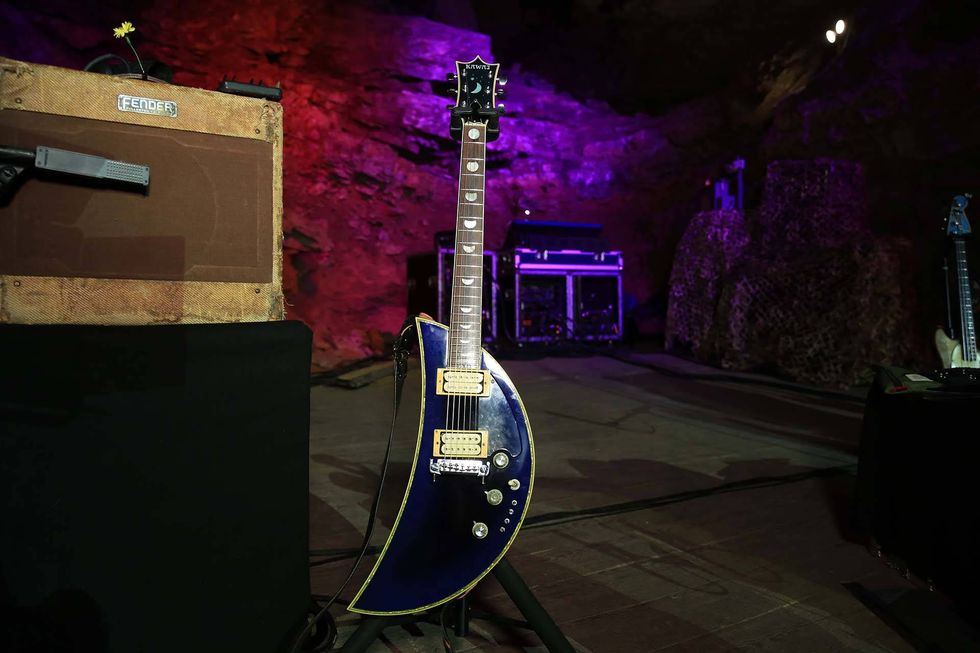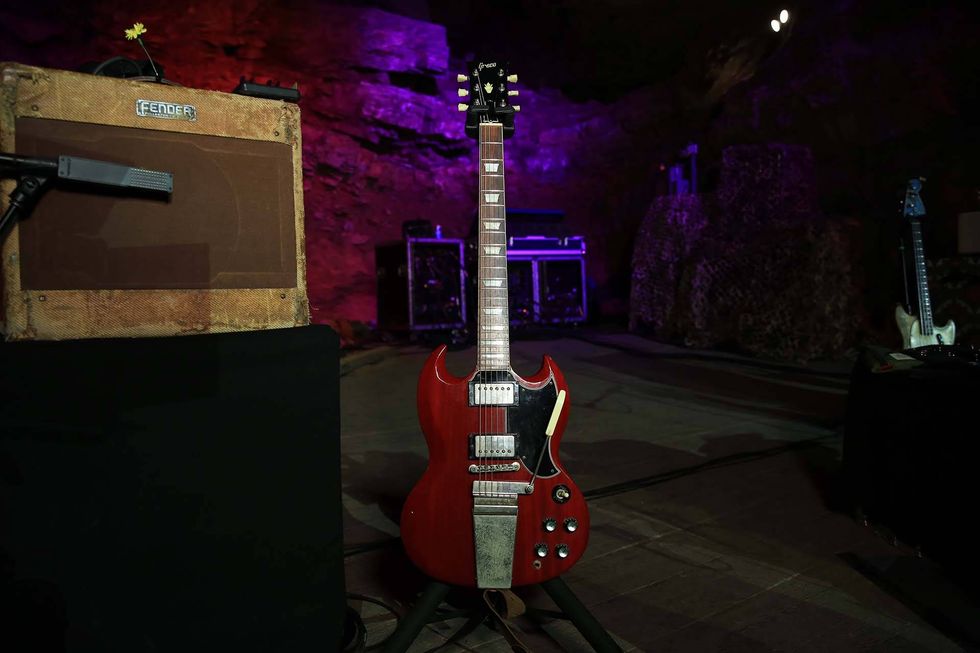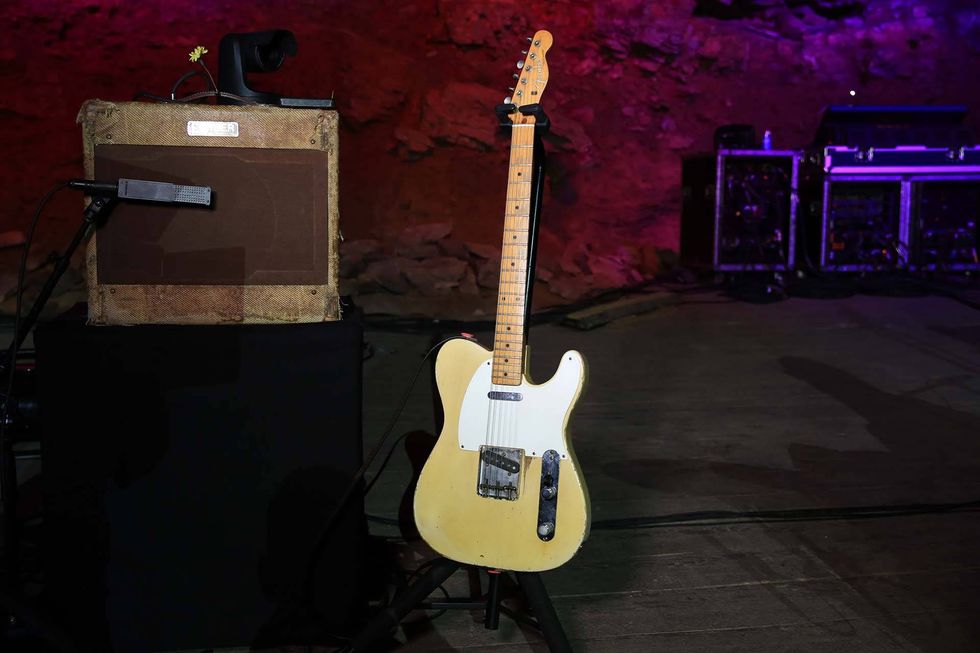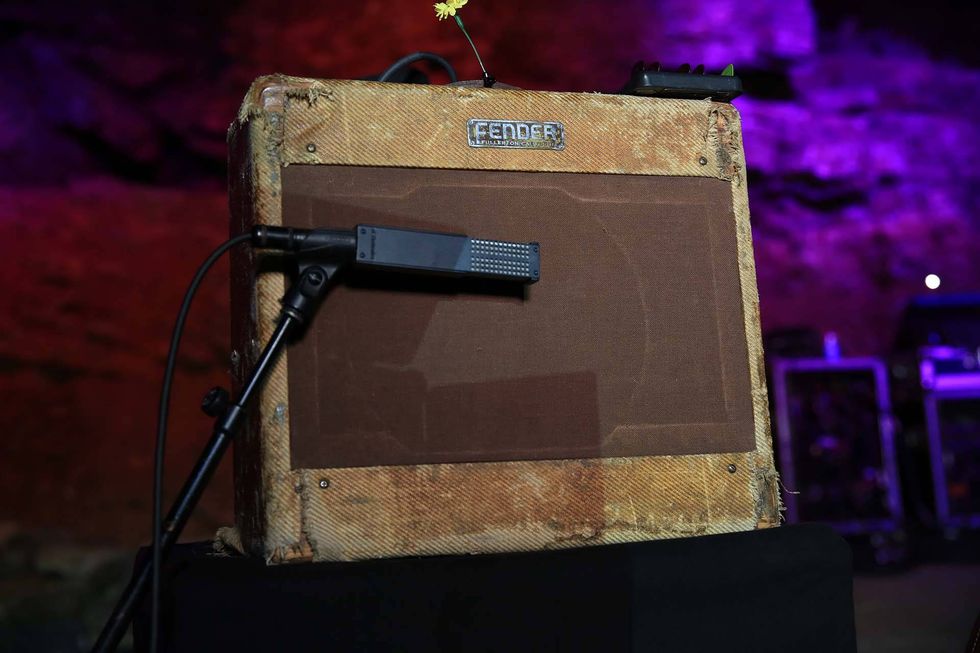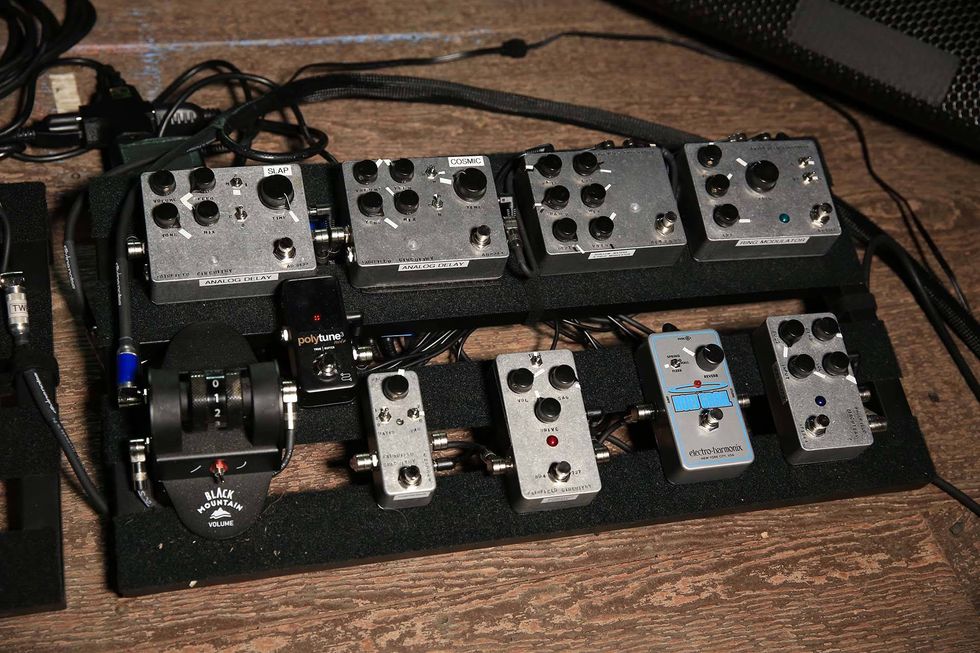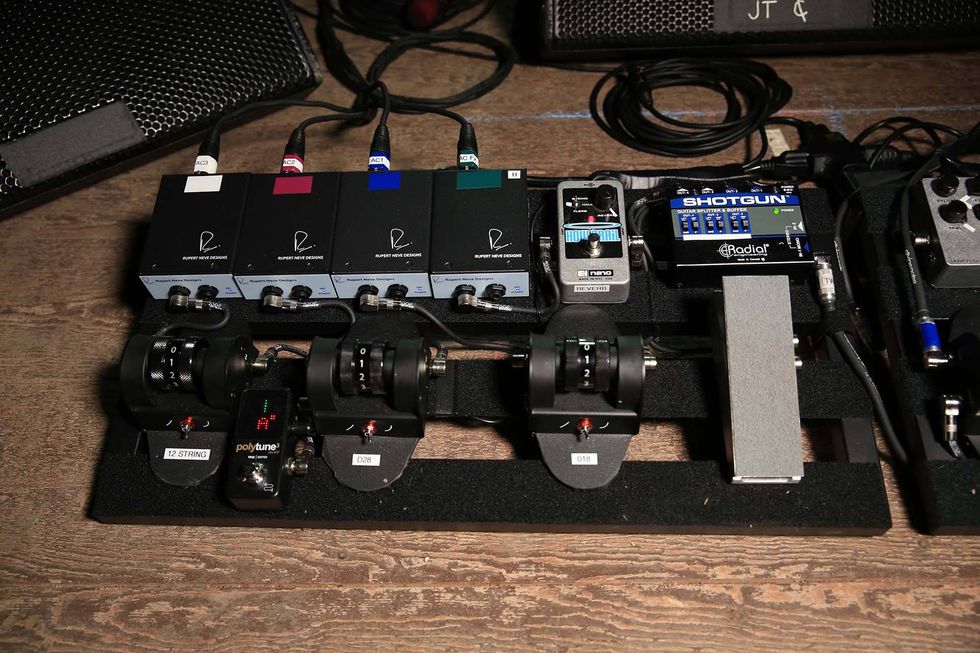British songwriter Sam Fender hails from North Shields, England, an industrial coastal port town near the North Sea, about eight miles northeast of Newcastle upon Tyne. Fender grew up in this small village, which he calls "a drinking town with a fishing problem." He lived there with his mother on a council estate, a type of British public housing. This is the mise-en-scène for Sam Fender's coming-of-age autobiographical new album, Seventeen Going Under. On the album's cover, a photograph shows Sam sitting on a brick stoop.
"That was a back lane that I used to go down and smoke weed when I was about 15 with a bunch of tearaways," Fender says in his regional "Geordie" accent. "That back lane leads into this estate called Meadow Well, which was an estate that had 80 percent unemployment where we grew up. There was a lot of riots there back in the '90s. It was practically on fire for the whole of 1991. Parts of it were just a wasteland for teenagers, and that's where we used to go and sit and hang out and stuff."
About a mile from that stoop is the Low Lights Tavern, where Fender tended bar after high school, and it's also where he played his music in the early days. Fender's manager, Owain Davies, first heard him play guitar there in 2013 in the corner of the pub. Davies immediately took Fender on as an artist, telling U.K. music industry trade paper Music Week: "He's just an undeniable talent, he's hard to ignore."
Sam Fender - Seventeen Going Under (Official Video)
Indeed, Fender's lyrics stop you in your tracks. These are from the title track of Seventeen Going Under:
I was far too scared to hit him
But I would hit him in a heartbeat now
That's the thing with anger
It begs to stick around
So it can fleece you of your beauty
And leave you spent with nowt to offer
It makes you hurt the ones who love you
You hurt them like they're nothing
After hooking up with Davies, Fender doubled down on gigging and writing, gaining fans and traction, and eventually won the 2018 BRIT Critics' Choice Award before releasing his first album, Hypersonic Missiles, in late 2019. Taking a slow-burn route of building a following for six years before releasing a full-length likely contributed to that album instantly having wings, debuting at No. 1 on the U.K. Albums Chart. Fender's sound and identity as an artist coalesced, with his songwriting skills bucking pop formula. "Hypersonic Missiles" weaves a love story in between musings about "feeding the corporate machine" and "kids in Gaza being bombed." In "Dead Boys," Fender vulnerably grieves fallen mates, victims of the male suicide epidemic in Northern England. Jangly Jazzmasters and epic, chorus-drenched solos play a lead character through it all.
Thematically, Fender, who is 27, gazed outward on Hypersonic Missiles, but he goes deeply inward on Seventeen Going Under. It's literally the soundtrack of his adolescence. "It's mainly about self-esteem, growing up, and the political landscape of England, and how that affects the Northeast and how the Tories basically alienate my hometown and the people that live there," he says. These songs of tribulation are resonating strongly with Britons, and landed Fender another No. 1 album in the U.K. when Seventeen Going Under came out in October 2021.
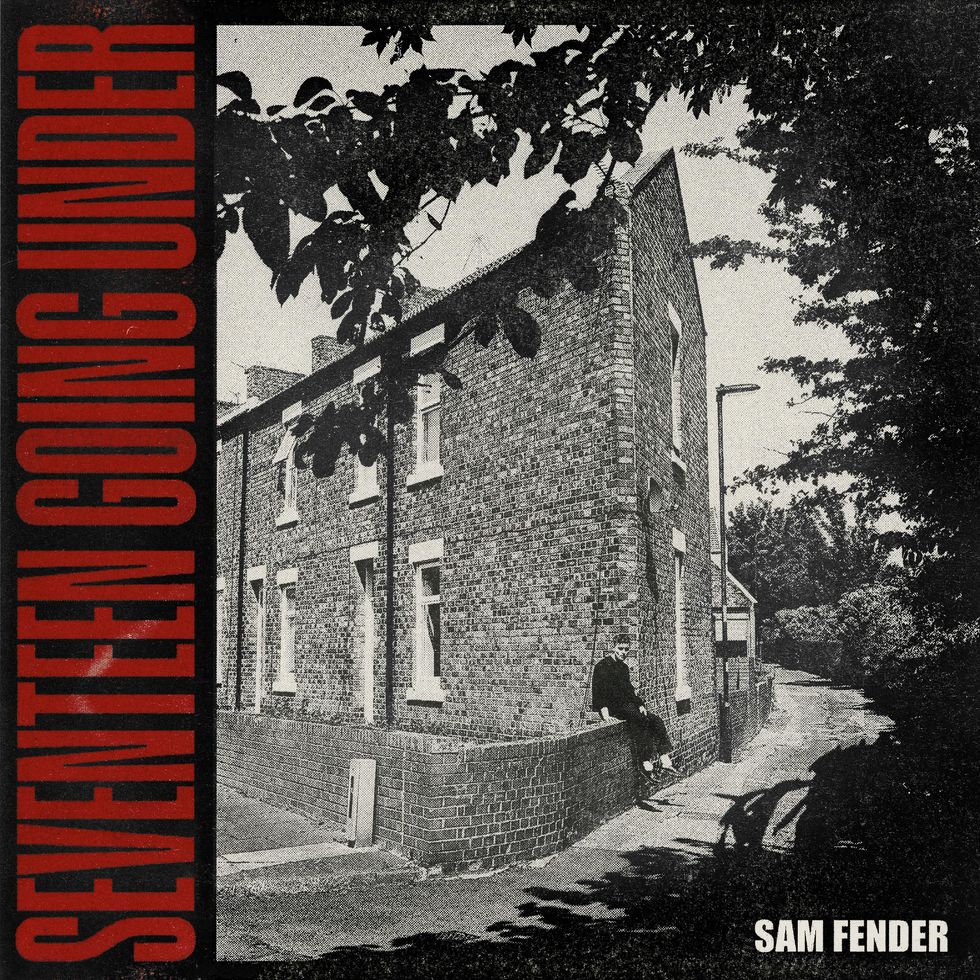
TIDBIT: Seventeen Going Under was recorded at Wor House (Sam Fender's studio) in North Shields, England, and Grouse Lodge in Ireland. It was mixed by Craig Silvey (Arcade Fire) and produced by Bramwell Bronte.
"I feel like it's my first proper album," says Fender. "The first record was a hodgepodge of songs written over six years. Some of the songs were written when I was 19. I was a baby when I wrote some of the songs on that album. Whereas this is a collective piece of work written over the course of two years. And I feel like it's more cohesive as a piece of work. I think it has continuity. I think it has a sound."
The album might've turned out completely different if not for the pandemic, which resulted in a prolific writing period for Fender, who was forced to quarantine. "I've got a health condition, which affects my immune system, so I had to stay in the house. I was alone, so there was a lot of reflection, a lot of looking back at the past," he recalls. "I was doing therapy at the same time to try and get my head screwed on, and I ended up dissecting my whole childhood in therapy. And then learnin' about the reason why I was the way I was; the reason why I was reacting to things in certain ways; the reason why my relationships weren't goin' well; the reason why I wasn't being the most savory character or not being my own ally. I was kinda making life hard for myself."
And so, this reckoning unfolds throughout 11 tracks. The title song documents a dark time when Fender's mother was battling health issues and couldn't make ends meet. It's a banger that cuts right to the struggle of feeling helpless as a teenager—being old enough to know what's going on but being too young to fix anything.
Sam Fender's Gear

"I like a Jazzmaster through a Fender Twin," says Sam Fender. "I like a bit of compression, just to kind of give you that bite, and I love an old Electro-Harmonix Small Clone, just the original cheap chorus pedal."
Photo by Laura Brindley
Guitars
Fender American Pro Jazzmaster
1959 Fender Jazzmaster
Fender Stratocaster
Martin 000X1AE
Takamine acoustic (gift from Elton John)
Amps
- Fender '65 Twin Reverb
- Fender '65 Deluxe Reverb
- Fender '68 Custom Deluxe Reverb
Strings
- D'Addario EXL115 Nickel Wound (.011–.049)
Effects
- Electro-Harmonix Small Clone
- Electro-Harmonix Small Stone Phase Shifter
- Electro-Harmonix Green Russian Big Muff Pi
- Electro-Harmonix Holy Grail Nano
- Electro-Harmonix Memory Man
- Electro-Harmonix POG2
- Electro-Harmonix Stereo Polychorus
- Fulltone OCD
- Origin Effects Cali76 Compact Deluxe
- Mooer Yellow Comp
- Strymon BigSky Reverberator
- Boss RE-20 Space Echo
- Way Huge Red Llama 25th Anniversary Overdrive
- Gamechanger Audio PLUS
"Spit of You" is about his dad and the complicated relationships between sons and fathers. "Me and my dad had a five-year period where we didn't get on very well," Fender shares. "He lived in a different country. As things have progressed with my career, we started hanging out a lot more. It's about a father and son's relationship and the inability to talk about anything other than DIY, music, or alcohol. If anything, it's a just declaration of love for my old man. And funny enough, it's his favorite song."
Not all the songs chew over familial dynamics. Fender dissects his own communication and romantic failures on "Get You Down," and there's externally pointed angst on the album's two political tracks: the rebellious anthem "Aye," which pokes and prods around class/wealth disparity, and "Long Way Off," which Fender says sounds like "a Bond movie theme" with its grandiose instrumentation.
"It's got 164 tracks of audio," Fender says of the latter. "It just built and built and built and became this huge orchestral track. It's about political polarity and how I feel a lack of identity with any of the political parties currently in my country. I think it's quite a unanimous feeling in a lot of places at the moment. A lot of working-class people in England feel displaced by it all, and in my hometown as well. It was written around the time when all the Trump supporters were storming the capital building. We're a long way off from sorting out the mess the world is in."
“It’s such a refreshing rehash of ’80s music. It makes me think that a lot of the sounds in the ’80s that sound jarring and cheesy, I feel like it was just because it was the early days with synthesizers and them sorts of guitar sounds.”
All of the songs were written by Fender, who played guitar, bass, piano, Hammond organ, synthesizers, glockenspiel, mandolin, and harmonica inside the North Shields studio he built by necessity during that time. The album has horns and strings across it, and Fender also wrote the string arrangements, though he didn't play those parts himself. His five band members, most of whom he grew up with—drummer Drew Michael, guitarist Dean Thompson, bassist Tom Ungerer, guitarist and keyboardist Joe Atkinson, and saxist Johnny "Blue Hat" Davis—play on the album as well. It was produced by Thom Lewis, aka "Bramwell Bronte," Fender's longtime collaborator who also produced Hypersonic Missiles.
Fender has a homespun grit much like his idol Bruce Springsteen, whose working-class ethos and songs from the heartland resonated with Fender at an early age. (The Boss connection has earned Fender the nickname of "Geordie Springsteen.") Fender's sound has a tinge of throwback and noticeable nods to his influences (cough, cough, sexy saxophone solos), but the magic lies in how he connects on so many levels with cinematic arrangements, bull's-eye lyrics, and sincere delivery. The songs are a baring of the heart, a showcase of human struggle.
His father and older brother (nine years his senior) are also musicians who gigged around town, obviously influencing Fender's journey down the troubadour road. "I got a guitar when I was 8 and started mucking around with it then. By the time I was 10, I was starting to get quite proficient," Fender shares. "And then as I got older, I realized at school there was always a couple of kids that could shred, and could really, really play. And I just thought, I don't wanna spend the rest of my life learnin' guitar just to be that—I wanna make songs, ya know?" As a kid, he was obsessed with Slash, Page, and Hendrix. "Then my brother started showin' us Springsteen and all that. I loved Oasis and all the British stuff as well."

“I felt like it could be powerful and delicate and all the things in between. That’s when I started singing properly, is after hearing Jeff Buckley.”
Photo by Charlotte Patmore
But a gamechanger came when Fender was 14 and his brother gave him Jeff Buckley's Grace. "I always had quite a high voice for a tall … I'm 6'1," he says. "Normally that means you're, like, a baritone, but I'm, like, quite a high tenor. When my brother gave us Jeff Buckley, I was like alright, he does that, and it's rock 'n' roll, and it sounds cool. That means I can do this as well [laughs]. I felt like it could be powerful and delicate and all the things in between. That's when I started singing properly, is after hearing Jeff Buckley. I always wanted to have a voice that was, like, "rawr"—gruff 'n' stuff—when I was a kid, but then I realized, well, that's not really who I am."
Sonically, the War on Drugs is one of Fender's favorite bands. Their impact on how he approaches crafting song parts can be heard in "Last To Make It Home," particularly the expansive guitar solo on the outro. "I had the Fender Twin up, like, so loud that my ears were bleedin', with my whammy bar," Fender says of recording that solo, "and whichever way I turned, I got that feedback. You get that sort of 'Champagne Supernova' endin'," Fender says. (WoD frontman Adam Granduciel had signed on to mix that track, but ultimately couldn't do it because he missed the master deadline for his own album.)
"I like Springsteen for the lyrics, and I love War on Drugs for the sound," Fender shares. "I think it's such a refreshing rehash of sounds we already know—it's such a refreshing rehash of '80s music. It makes me think that a lot of the sounds in the '80s that sound jarring and cheesy, I feel like it was just because it was the early days with synthesizers and them sorts of guitar sounds. I feel like the War on Drugs have refined it. It's beautiful and I think there's more to be looked down that avenue. That's why I'm quite chorusy-soundin'—I love that sound. It's nostalgic for me, even though I'm not from the '80s, I grew up in a house where that music was playing."
“I was doing therapy at the same time to try and get my head screwed on, and I ended up dissecting my whole childhood in therapy.”
Though his new album is bursting with layers upon layers of instruments, he undoubtedly has an ingrained sense of how to be impactful with just a guitar and his voice, which came from years of performing solo without a backing band. In a BBC Radio 1 Live Lounge concert in early 2020, Fender did a solo performance of Amy Winehouse's "Back to Black," fingerpicking the melody and bass line, while nailing a rather ambitious vocal. His thumb bounces between the 5th and 6th strings, while his other fingers create a harp-like effect on the melody. "It's a strange move, but once you start getting the muscle strength, it's a constant thing and it's quite hypnotic," he says.
Fender describes his songwriting method as "chop and change." He noodles on his Jazzmaster, does some fingerpicking, or switches to another instrument. "A lot of the times I write a lot of songs on piano and convert to guitar. So, I find the chords on piano sometimes and then I'll find interesting variants of the chords on the guitar to make it sound pretty." He likes to experiment with tunings as well. Seventeen Going Under is mostly in C# standard, though he did play around a bit with Nashville tuning and light gauge strings.
When conversation turns to a special guitar he just bought, Fender lights up. "I've finally treated myself and allowed myself to buy something that was expensive because there's always an air of guilt," he says. "I've been lucky, Fender's always given us stuff. I've always had loads of free guitars because I've always been sponsored by them. But when it comes to buying stuff, there's still a part of us that thinks I'm still living in the flat with my mum on a council estate, and I still feel like I can't. I'm like, "ooh, that's a lot of money." It's like a subconscious thing. I was always quite frugal. I was always scrimpin'.

Fender primarily plays Jazzmasters, but he strapped on a Stratocaster for "Will We Talk?" at Hole 44 in Berlin, Germany, on November 4, 2021.
Photo by Chux on Tour Photography @chuxontour
"But I've just bought a ridiculous Jazzmaster. It's a 1959," he continues. "It's the second year of Jazzmasters, one of the very, very first ones. It's absolutely stunning. It's got a gold scratch plate, and it came with a packet of strings from 1959 from New Brunswick."
He explains his sweet spot for tone matter-of-factly. "I like a Jazzmaster through a Fender Twin. I like a bit of compression, just to kind of give you that bite, and I love an old Electro-Harmonix Small Clone, just the original cheap chorus pedal. I think it sounds great. And every other chorus pedal I put on I'm just like 'pfft whatever.' People go, 'try this boutique $300 fucking chorus pedal.' And I put it on and it's not as good as a Small Clone. Small Clone just sounds like a chorus. And it's one knob. It's idiot proof and I'm an idiot [laughing]. That's my go-to."
At the beginning of 2022, Fender will live in New York City while recording his third album at Electric Lady Studios, which is where he'd planned to make his second album before the pandemic made that impossible. He wrote 60 songs over the last two years, recording only 11, which means he has a good stash in his back pocket. The rest of 2022 he'll be headlining arena tours, as well as supporting the Killers on four dates in London and Dublin.
On the release of such a personal collection of music, Fender recently penned a letter to his 17-year-old self. In it, he tells young Sam not to be so serious. Present-day Sam's social media is light and carefree, with videos of him explaining how to make the best cuppa, eating jellied eels, and mini movies of strangers on the street with improvised voiceovers. So, it appears time has done the songwriter well. It's all in the new album, but 27-year-old Sam had this to say to 17-year-old Sam: "Art is the purest remedy for all internal conflict and you're taking a career in it. It's an honour to do what you will do, never forget that. You may feel alone currently but you will realise that your stories, when put to music, open up a side of you that actually helps people. A lot of these stories were originally about you but they belong to everyone, as everyone has their own, and they will be screamed back at you—from clubs and dive bars, even arenas. Some kid, 17, probably going through a boatload of similar shit that you experienced, will be front and centre, screaming these stories as if it's their last night on Earth."
Sam Fender - Live at Reading Festival 2021 Full Set
With two hit albums in the last two years but no touring because of the pandemic, Sam Fender was ready for Leeds Festival 2021. Witness one of his signature chorus-and-whammy solos at 12:50 on "The Borders" from 2019's Hypersonic Missiles.








![Rig Rundown: Russian Circles’ Mike Sullivan [2025]](https://www.premierguitar.com/media-library/youtube.jpg?id=62303631&width=1245&height=700&quality=70&coordinates=0%2C0%2C0%2C0)







